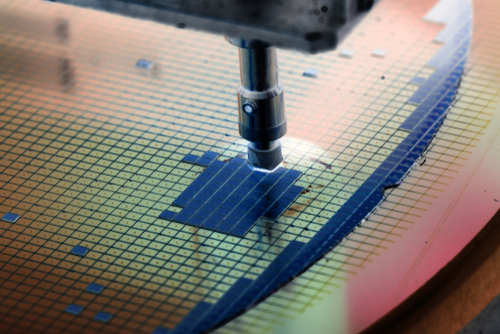
In direct support of the CHIPS and Science Act, Lockheed Martin and GlobalFoundries (GF) announced a new collaboration this week, focused on advancing semiconductor ideas, manufacturing processes, security, and resiliency of domestic supply chains.
The CHIPS and Science Act was passed last year, offering approximately $280 billion in funding for domestic research and manufacturing of semiconductors, including subsidies for domestic production, investment tax credits, and money for research and workforce training.
“Lockheed Martin is focused on delivering cutting-edge 21st Century Security capabilities that advance deterrence and keep our customers ahead of emerging threats,” Jim Taiclet, chairman, president and CEO of Lockheed Martin, said. “This begins with securely manufactured semiconductors. We look forward to working with GlobalFoundries to help increase access to domestically produced microelectronics – a true national security imperative.”
GF’s manufacturing facilities in New York and Vermont have Trusted accreditation from the U.S. government, which authorizes them to produce chips for use in the country’s most sensitive land, air, sea, and space-focused systems. The company’s differentiated technology and manufacturing practices will be critical to the joint effort. Lockheed Martin also stated that these additions will help it more quickly and affordably produce secure solutions.
“The GF team has been a trusted partner of the U.S. government and the aerospace and defense industry for decades,” Dr. Thomas Caulfield, president and CEO of GF, said. “We are proud to collaborate with Lockheed Martin to address the growing need for a reliable supply of trusted, feature-rich semiconductors for mission-critical security systems. Today’s announcement is another example of GF’s commitment to innovation, our global manufacturing footprint, and enabling a more resilient semiconductor supply chain in the U.S. and abroad.”
The companies specifically noted that 3D heterogeneous integration for optimized chip packaging to improve performance, silicon photonics for low-power and high-speed data transport, and gallium nitride on silicon to help chips work at higher temperatures, were all on the docket for exploration, along with the creation of a chiplet ecosystem to produce chips quicker and more affordably.




